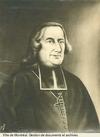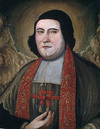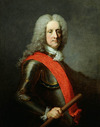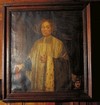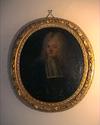Monbeton* de Brouillan, Durand had been instructed to improve the clergy’s relations with the civil authorities. He seems to have been successful. Brouillan’s death in September 1705 undoubtedly
Jansenism in Europe and over the Chinese rites, quarrels which had repercussions as far as Quebec. The dispute at the time of Bishop Saint-Vallier’s funeral gave certain members of the clergy the
allocated forever “to the founding and upkeep of this Seminary and Clergy.” All products of “all the lands of the said country of New France” would be tithed. The settlers’ protests forced Bishop Laval
Montreal. In a pastoral letter on 22 June 1742 he had given the clergy and faithful of those regions notice both of his visit and of the reasons for it. On 25 June he was in Montreal. In 1743 he
to the others. I have made him my vicar general because of the great services that he renders this diocese.” Obviously Bishop Saint-Vallier had finally found among his clergy a man upon whom he could
at Detroit, refused to recognize the authority of governor and intendant.
In religious matters he gave complete satisfaction to the whole clergy
exceptions Beauharnois got on well with the clergy. Even when the coadjutor, Bishop Dosquet*, issued a pastoral letter in 1731 reviving
, especially the responsibility for teaching theology and Holy Scripture to the clergy and for preaching in the cathedral church. The new theologal’s demands surprised many ecclesiastics. In Quebec the dignity
“deputy” of the parish priests of his region, he signed a collective memorandum by the Canadian clergy on the tithe, a memorandum that was sent to the court. The situation was aggravated for Abbé Vachon by
a series of sharp verbal exchanges that led in turn to complaints about his lack of respect for the clergy. This would not be by any means the last occasion when Jacques’ personality stimulated heated
the clergy’s proposal to increase the annual tithes, on the grounds that it would be too burdensome for the habitants. Similarly, he pleaded with the minister to permit and even to support Madame
domain, Monseignat, had to match expenditures with revenue. The tax farmers had given him orders to pay out card money at the same rate as he had received it. The clergy and the officers whose incomes came
the clergy in general, de Meulles appears to have been on good terms from the outset; certainly they voiced no complaints on his conduct of affairs. With La Barre too his relations were at first
the young Acadians of these settlements who were attracted by their free life and the hope of plunder. The activities of the privateers were opposed by the clergy who felt that they had a bad influence
: to transfer to the secular clergy a parish which the king, with the previous agreement of the bishop, had entrusted to the Recollets of Brittany. So it came about: on a fine November Sunday when nobody
he was accepted by the assembly of the clergy of France, Abbé Queylus was not received favourably by the Jesuits. They, declining an invitation from the queen mother, Anne of Austria, to have one of
[La Croix] episcopacy and he went so far as to state that the bishop should resign because of the divisions he caused among both clergy and laity. Death overtook Jacques de Lamberville
[Lom d’Arce].
To evangelize the Indians and to keep the French within the bounds of Christianity, however, the clergy in Canada was not
; then came clergy and 6 war chiefs bearing the flower-covered coffin on which lay a plumed hat, a sword, and a gorget. Behind the train were the brother and sons of the dead chief, and files of Huron
with the clergy.
Jean-François died in Quebec in May 1733. He was survived by his wife, Catherine, who was buried in Quebec on 13 Dec. 1740


